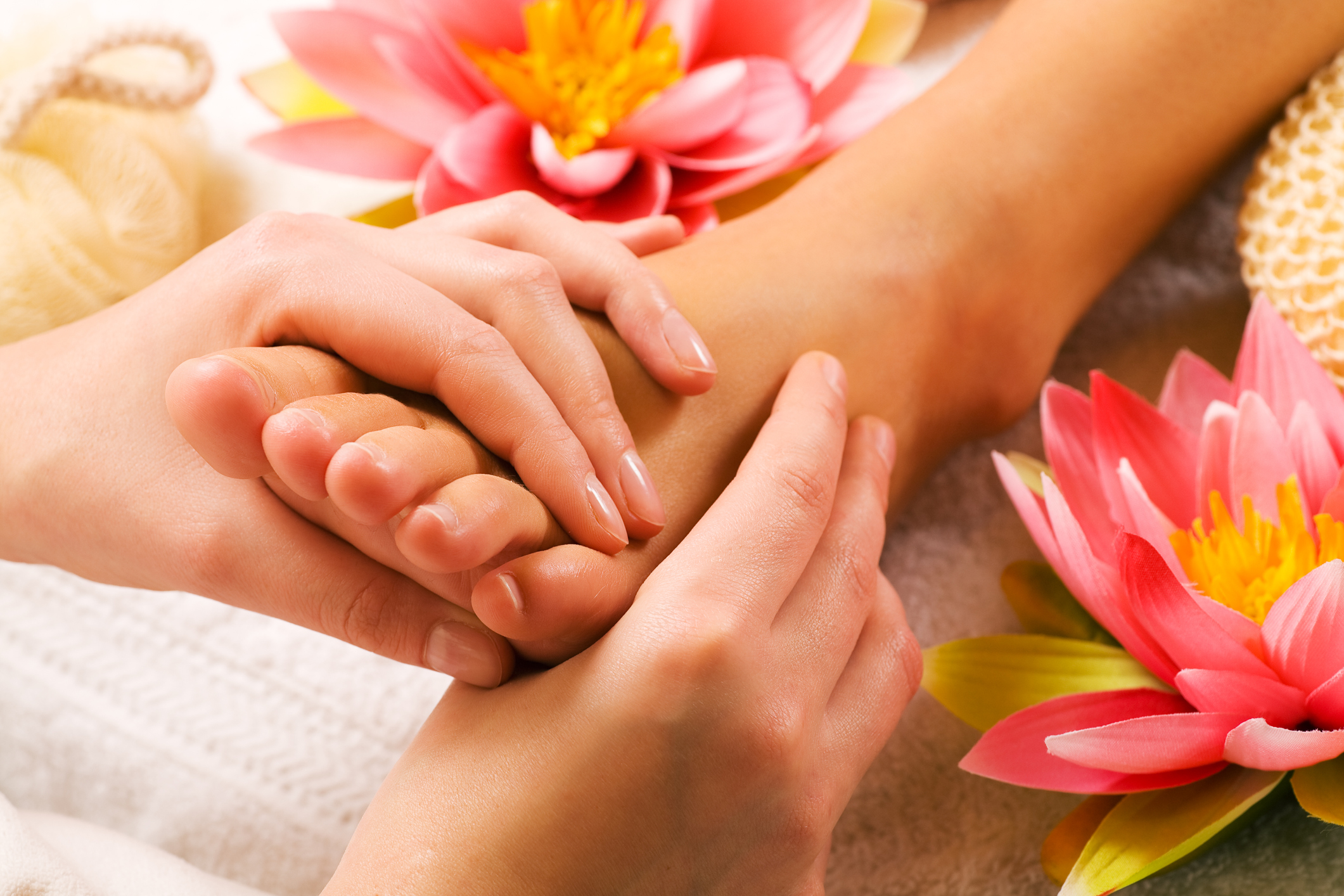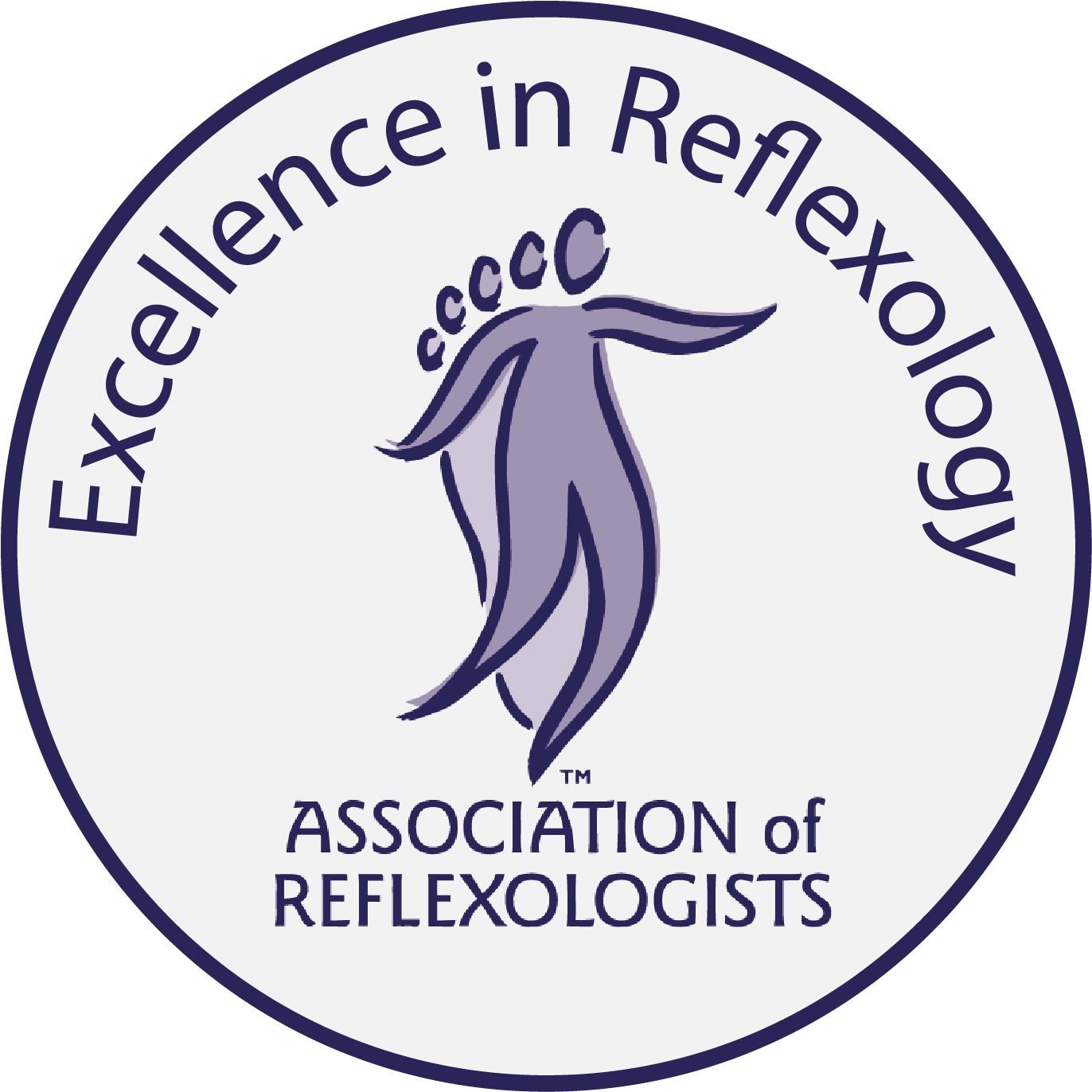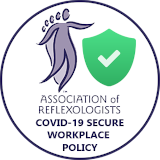Reflexology for Cancer Care
When cancer patients face stress, fatigue, or nausea, reflexology can help ease symptoms. Although each patient responds individually, reflexology can support relaxation and comfort during cancer treatment.
Why choose Reflexology for Cancer Care?
Reflexology may be a good choice for people who are receiving treatment for cancer. The client is able to remain clothed and the non-intrusive gentle therapy requires minimal repositioning. Reflexology may benefit patients who feel stressed, anxious, nauseous, or who have trouble sleeping. If patients feel more relaxed on reflexology treatment days, they may sleep better that night and have more energy the following day.
There is some evidence that reflexology can help you:
• relax and cope with stress and anxiety
• relieve pain
• lift your mood and give a feeling of well being
Reflexology can also help:
• boost the immune system
• fight off colds and bacterial infections
• reduce sinus problems
• reduce back problems
• change hormonal imbalances
• overcome infertility
• reduce digestion problems
• reduce arthritic pain
• reduce nerve tingling and numbness from cancer drugs (peripheral neuropathy)

Reflexology during cancer treatment: £30
The first appointment will take approx. 1.5 hours including a detailed consultation.
Evidence on reflexology for cancer care:
• In the field of cancer care, in 2009 62% of cancer units in the UK provided reflexology and it was second only to counselling [1] . This vulnerable and very unwell group have nothing but good things to say about reflexology, with the only complaint being lack of availability of appointments:
• ‘The improvement in my lower back pain has been staggering’
• ‘My sleep has improved and I feel relaxed and content’
• ‘I found having treatments helped me focus and be more positive and able to deal with incidents that made me feel fragile.’ [2]
• When reflexology for cancer care was evaluated in a busy London hospital there was a 28% change in perceived well-being. [3]
• ‘Patients appear to perceive complementary therapies as enhancing compassionate care and providing comfort during an extremely difficult clinical experience.’
• Even in a palliative care setting all participants felt their quality of life had improved and words such as relaxed and comforted were used while symptoms were reduced. [4]
• When considering mental health, a study of reflexology on the psychological effect of having breast cancer [5] resulted in a statistical improvement in quality of life even at one month after the completion of the intervention. This difference was to a level that was calculated as being clinically worthwhile. While a small cross over trial (the patients were their own control) from America in lung and breast cancer patients showed that both groups of patients had a significant decrease in anxiety after reflexology. [6]
• [1] Availability of complementary and alternative medicine for people with cancer in the British National Health Service: results of a national survey. Egan B 1 , Gage H, Hood J, Poole K, McDowell C, Maguire G, Storey L. Complement Ther Clin Pract. 2012 May;18(2):75-80
• [2] Is reflexology as effective as aromatherapy massage for symptom relief in an adult outpatient oncology population? Dyer J, Thomas K, Sandsund C, Shaw C. Complement Ther Clin Pract. 2013 Aug;19(3):139-46
• [3] Effects of complementary therapies in cancer care. Briscoe J, Browne N (2013) Nursing Times; 109: 41, 18-20.
• [4] Does reflexology impact on cancer patients’ quality of life? Hodgson H. Nurs Stand. 2000 Apr 19-25;14(31):33-8.
• [5] A randomised, controlled trial of the psychological effects of reflexology in early breast cancer. Sharp DM 1 , Walker MB, Chaturvedi A, Upadhyay S, Hamid A, Walker AA, Bateman JS, Braid F, Ellwood K, Hebblewhite C, Hope T, Lines M, Walker LG. Eur J Cancer. 2010 Jan;46(2):312-22.
• [6] The Effects of Foot Reflexology on Anxiety and Pain in Patients With Breast and Lung Cancer ONCOLOGY NURSING FORUM Stephenson, N. L. Weinrich, S. P. Tavakolil, A. S. 2000 VOL 27; PART 1 , page(s) 67-76
© 2021 Karen Harvey Reflexology | All Rights Reserved | GDPR Statement


